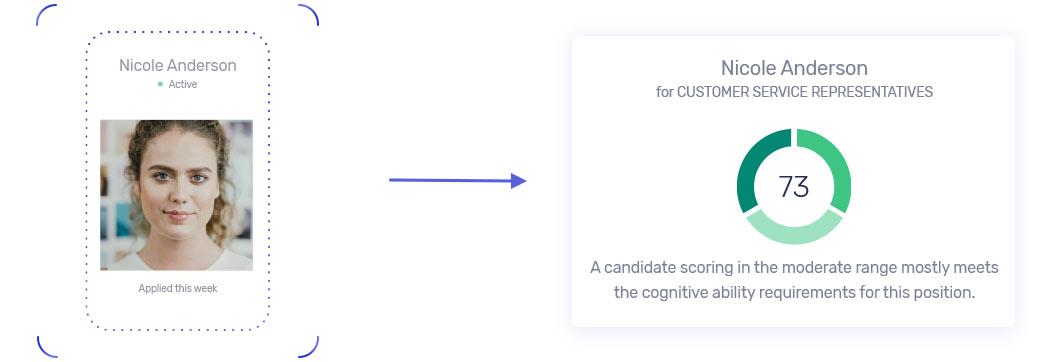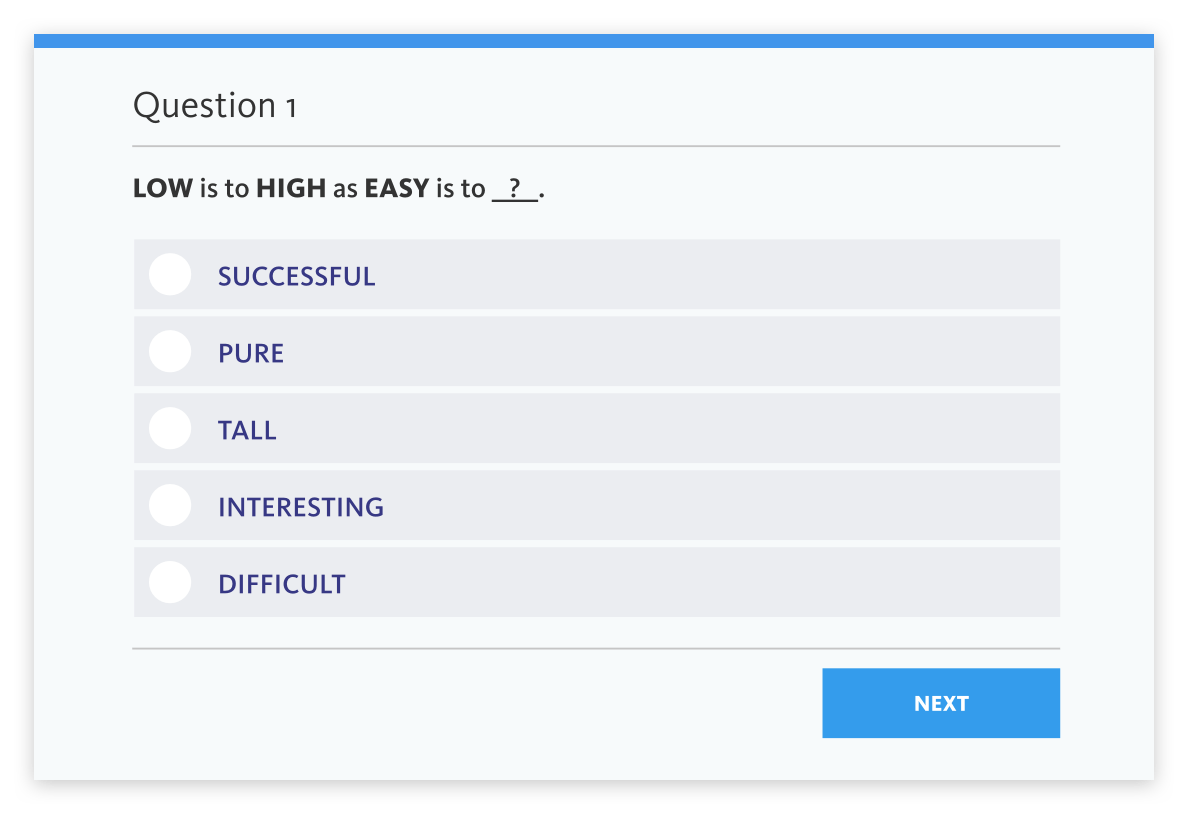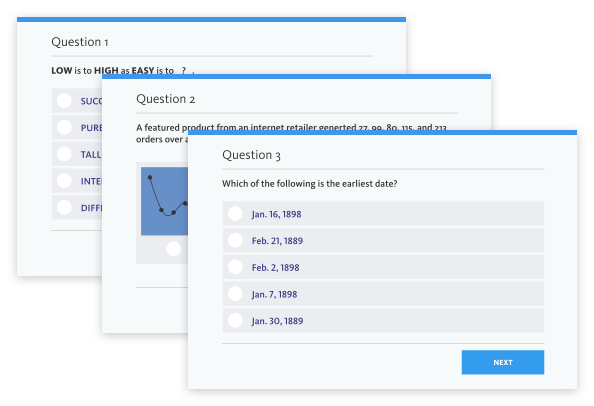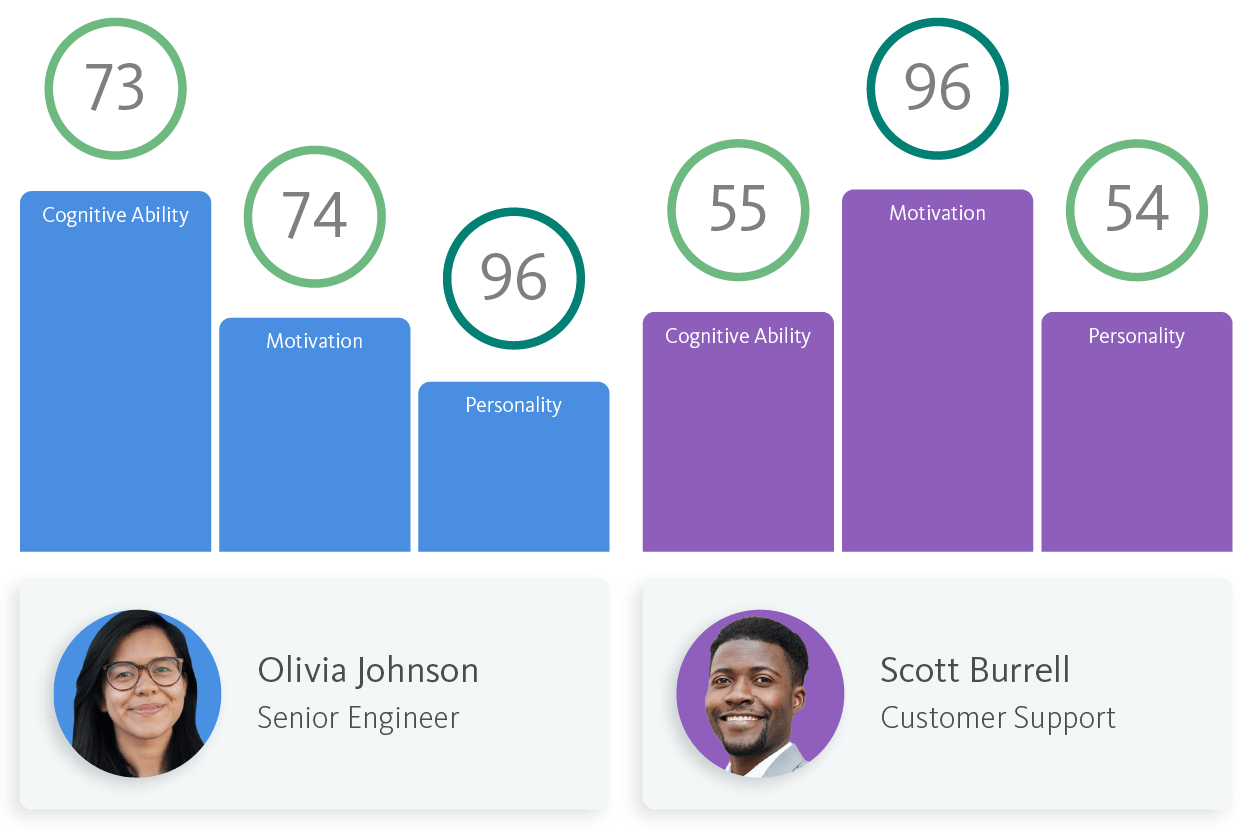Put simply, cognitive ability describes a candidate's ability to learn, adapt, solve problems, and understand relevant instructions. The single-best predictor of job performance, a cognitive ability test helps you understand if a candidate can do the job.

Why assessing cognitive ability is so important
As noted earlier, cognitive ability is widely accepted as the single-best general predictor of job performance. This position has been confirmed in multiple scientific studies, most recently in a 2016 study performed by renowned I-O psychologists F. L. Schmidt, I.S. Oh, and J.A. Shaffer.
Assessing someone's general mental ability lets you know whether they have the capacity to:
Learn from experience
Problem-solve
Think abstractly
Comprehend complex ideas
More predictably reliable than resumes, cover letters, and interviews, this kind of objective candidate data can help your organization identify best-fit candidates early on in the vetting process, decide who to make an offer to once you have a shortlist of frontrunners, and tailor candidates’ onboarding and training experiences to best meet their needs.
How Wonderlic Select Assess Cognitive Ability
The very first test publisher to create a short-form cognitive ability test for the workplace, Wonderlic is the founder of cognitive ability testing for jobs. For over 80 years, Wonderlic has been leading the industry in efficient, predictive measurement of cognitive ability.

The Wonderlic Select cognitive ability test consists of 50 questions that candidates have 12 minutes to answer. The questions feature challenges related to simple math, basic logic, language comprehension, spatial reasoning, pattern identification, and more that become increasingly difficult as the test progresses.
Our scoring algorithm is based on a candidate's overall response pattern, additionally weighting each question based on its level of difficulty and the impact of guessing. This produces a far more precise estimate of cognitive ability than a score based only on the total number of correct answers.



Because different jobs require different knowledge, skills, and abilities, the weight the cognitive assessment is given relative to the motivation and personality assessments in the overall Wonderlic score varies based on the specific requirements of the job for which the candidate is applying. (For example, cognitive ability might matter more for a senior-level engineering role that requires world-class problem-solving skills than it would for an entry-level customer support role that more highly values drive and strong "people skills".)
The flexibility of this scoring model enables HR departments to get tailored insights for any job profile with a single Wonderlic Select test.

Our research scientists create these job profiles by analyzing both data from the US Department of Labor’s O*NET database and the applicant data across thousands of job profiles in our own database. Our customers are then able to find the profile that best matches any opening by simply uploading their job descriptions and conducting a search through our AI-powered Job Directory.

Cognitive ability is the most predictive construct of job performance.
How employers benefit most from cognitive assessments
Interviews and resumes reveal information about an applicant's work history, experience, and education, but they don't provide direct insight into a person's potential to succeed on the job.
With a cognitive ability assessments in your hiring toolbox, you'll be able to confidently expand your organization's talent pool to unearth potential hidden gems. That could include talented recent college graduates with little work experience or employees trying to make the leap into a new career who might have the perfect skill set, despite not having the perfect resume.
Also, when companies hire employees with higher likelihoods of success, they're more likely to:
Go beyond resumes and interviews to compare and hire candidates based on their potential and objective data, with Wonderlic Select.


